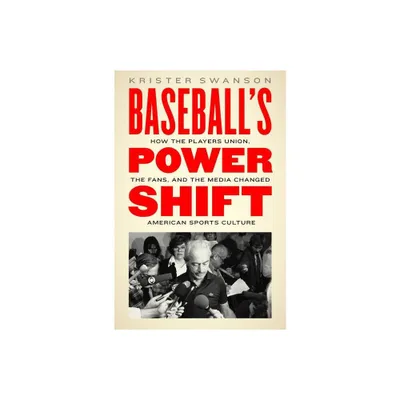Home
Power Shift: Australia's Future Between Washington and Beijing; Quarterly Essay 39
Loading Inventory...
Barnes and Noble
Power Shift: Australia's Future Between Washington and Beijing; Quarterly Essay 39
Current price: $18.99


Barnes and Noble
Power Shift: Australia's Future Between Washington and Beijing; Quarterly Essay 39
Current price: $18.99
Loading Inventory...
Size: OS
*Product Information may vary - to confirm product availability, pricing, and additional information please contact Barnes and Noble
In the third
Quarterly Essay
of 2010, Hugh White considers Australia's future between Beijing and Washington. As the power balance shifts, and China's influence grows, what might this mean for our nation?
Throughout our history, we have counted first on British then on American primacy in Asia. Now the rise of China as an economic powerhouse challenges US dominance and raises questions for Australia that go well beyond diplomacy and trade - questions about our place in the world, our loyalties and our long-term security.
Will China replace the US as regional leader? If so, we will be dealing with an undemocratic and vastly more powerful nation. Will China wield its power differently from the US? If so, should we continue to support America and so divide Asia between our biggest ally and our biggest trading partner? How to define the national interest in the Asian century? This visionary essay considers the shape of the world to come and the implications for Australia as it seeks to carve out a place in the new world order.
'This year China overtook Japan to become the world's second-biggest economy. It is already bigger, relative to the US, than the Soviet Union ever was during the Cold War. A Chinese challenge to American power in Asia is no longer a future possibility but a current reality. Few issues are more important to Australia's future than how this plays out. You would not know it to listen to our leaders.' Hugh White,
Power Shift
Quarterly Essay
of 2010, Hugh White considers Australia's future between Beijing and Washington. As the power balance shifts, and China's influence grows, what might this mean for our nation?
Throughout our history, we have counted first on British then on American primacy in Asia. Now the rise of China as an economic powerhouse challenges US dominance and raises questions for Australia that go well beyond diplomacy and trade - questions about our place in the world, our loyalties and our long-term security.
Will China replace the US as regional leader? If so, we will be dealing with an undemocratic and vastly more powerful nation. Will China wield its power differently from the US? If so, should we continue to support America and so divide Asia between our biggest ally and our biggest trading partner? How to define the national interest in the Asian century? This visionary essay considers the shape of the world to come and the implications for Australia as it seeks to carve out a place in the new world order.
'This year China overtook Japan to become the world's second-biggest economy. It is already bigger, relative to the US, than the Soviet Union ever was during the Cold War. A Chinese challenge to American power in Asia is no longer a future possibility but a current reality. Few issues are more important to Australia's future than how this plays out. You would not know it to listen to our leaders.' Hugh White,
Power Shift


















